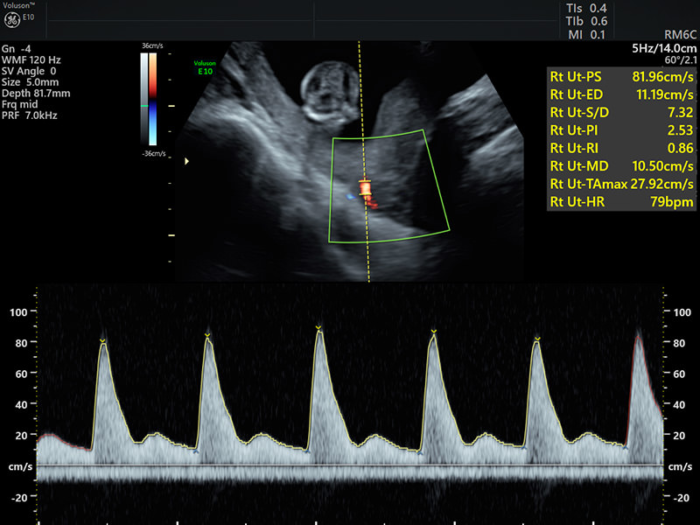Preeclampsia is a pregnancy-related condition that can affect both the mother and the baby. It’s a major cause of maternal and fetal mortality in India. Contact Dr Tejas Tamhane if you’re looking for preeclampsia screening in Pune.
Preeclampsia Screening In Pune: An Overview
Preeclampsia is a serious pregnancy-specific condition that affects nearly 5 to 8 per cent of pregnancies worldwide. It is a significant cause of maternal and fetal mortality and morbidity. People with preeclampsia experience high blood pressure (hypertension) as well as elevated levels of protein in their urine.
High blood pressure and indicators of organ damage, such as liver or kidney failure, are hallmarks of preeclampsia, which usually manifests after the 20th week of pregnancy. There may be serious implications if treatment is not received. This explains why early diagnosis and screening are so important.

Symptoms of Preeclampsia
Signs and symptoms of preeclampsia often develop gradually but can appear suddenly. Key signs include persistent high blood pressure, visual disturbances, severe headaches, upper abdominal pain and swelling in the face, hands or feet.
Early Diagnosis of Preeclampsia
Preeclampsia is not just a hypertensive disorder of pregnancy; it is a systemic condition that can affect multiple organ systems. For the fetus, it can lead to intrauterine growth restriction (IUGR), placental abruption, preterm birth or even stillbirth. For the mother, severe preeclampsia can progress to eclampsia, HELLP syndrome, stroke or multi-organ failure. These issues highlight the need for early detection and timely intervention.
Early diagnosis of preeclampsia is critical to decrease maternal and fetal morbidity and mortality. Regular prenatal check-ups help identify warning signs of the condition. During these routine visits, your fetal medicine expert measures blood pressure and conducts urine tests to detect protein levels. If high BP or other indicators are observed, additional tests such as blood tests, ultrasound scans and fetal monitoring are carried out.

Preeclampsia Screening In Pune
Identifying women at high risk early in pregnancy allows for close monitoring and implementation of preventive measures. Commonly used approaches include:
- Maternal History and Risk Factor Assessment
Classifying risk levels is aided by knowledge about the mother’s medical, obstetric and family history. Women with autoimmune conditions, including lupus, diabetes, or persistent hypertension, are closely monitored.
- Biochemical Markers

Placental growth factor (PlGF) and soluble fms-like tyrosine kinase-1 (sFlt-1) levels are increasingly used to predict preeclampsia, particularly in high-risk pregnancies.
- Ultrasound Studies
Uterine artery Doppler studies measure blood flow to the placenta, helping detect early signs of placental insufficiency, a precursor to preeclampsia.

- Blood Pressure Monitoring
Frequent checks can identify patterns suggestive of gestational hypertension, which often precedes preeclampsia.
Screening is especially important during the first and second trimesters, as early identification allows for preventive strategies that reduce complications.
Managing Preeclampsia Effectively
Preterm delivery is the only effective treatment for preeclampsia. However, the hazards of fetal preterm must be weighed against the dangers of persistent maternal illness when determining the best time to deliver.
To stop the condition from getting worse, delivery is usually advised in cases of moderate preeclampsia at term. If the circumstances of the mother and foetus are stable, expectant care may be explored for preterm preeclampsia. This would allow for the administration of corticosteroids to promote foetal lung maturity.
In addition to this, close maternal and fetal surveillance is critical. Regular monitoring of blood pressure, urine protein, laboratory parameters and fetal growth and well-being helps guide clinical decision-making. Doppler ultrasound of the uterine arteries and umbilical artery can provide valuable information about placental function and fetal status.
Preeclampsia Screening In Pune At Precious Clinic
Preeclampsia is a complex condition that demands vigilance, prompt diagnosis and comprehensive care. With advancements in screening technologies and management protocols, the risks associated with this condition can be significantly mitigated. Pregnant women and doctors must work together to ensure timely interventions, ultimately safeguarding the health of both mother and child.
Are you or a loved one considering preeclampsia screening in Pune? Look no further than Dr. Tejas Tamhane at Precious Clinic for Advanced Fetal Medicine.

